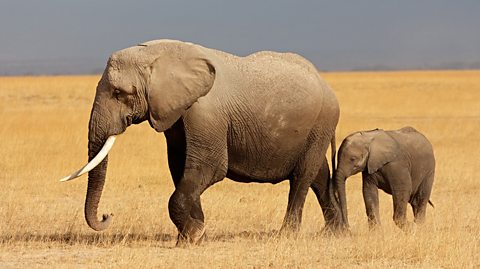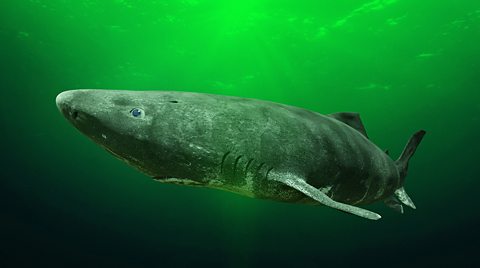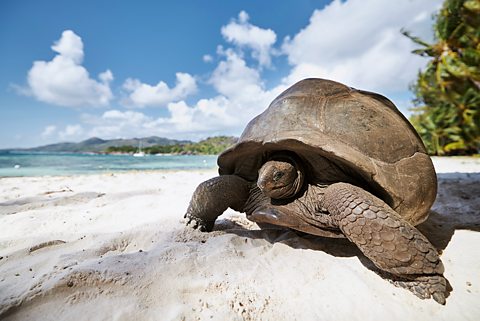Animal lifespans explained
Some animals have extremely short lifespans, with insects such as the mayfly only living for 24 hours. But others live much, much longer. In this article we dig into some of the longest living animals, starting with our friend the elephant.
The trunk of elephant knowledge
African elephants are the largest land mammals on earth, famed for their wisdom and memory. These majestic creatures can grow up to 4m at shoulder height and weigh around 6350kg. But how long do African elephants live?
The average life expectancy of an African elephant is around 70 years, while their slightly smaller relative, the Asian elephant, has a life expectancy of around 60 years.

As most of us are aware, elephants arenвҖҷt native to the UK вҖ“ but we do have a few small herds, or parades, of elephants in captivity at zoos across the country. Living in captivity affects the health of elephants in a number of ways, not least their life expectancy. So, how long do elephants live in captivity?
Life expectancy of an elephant in captivity can vary dramatically with the conditions in which they are kept, but some studies estimate that wild elephants live more than twice as long as those that are kept in zoos.
Enough about elephants - which animal lives the longest?
Currently the longest living animal in recorded history is an Ocean Quahog Clam from Iceland, with a recorded age of 507 years old. This was calculated by counting the annual growth bands in its shell вҖ“ much like you would with a tree. The clam was thought to have been born is 1499 and was called Ming the Mollusc by the press, in reference to the ruling dynasty of China at the time. Icelandic researchers preferred the name вҖҳHafrГәnвҖҷ, which is Icelandic for 'Ocean Mystery'.
Clams are invertebrates, which means they donвҖҷt have a spine or a backbone. Humans are vertebrates, which means we do have a backbone. As vertebrates have a structure that runs through most of their body, their body structures tend to be more highly organised and specialised than those of invertebrates.
But why are we telling you this? To tell you about the longest living vertebrate, of course!

The longest living vertebrate in recorded history is a Greenland shark that was found dead in 2016 and estimated to be 392 years old. That means this particular shark lived through the Great Plague of London and the Industrial Revolution - though we doubt she ventured on land to watch them happen.
In their North Atlantic and Arctic Ocean habitats, Greenland sharks usually grow to between 2.4 and 7 metres long and weigh between 400kg and 1,400kg. Because the shark lives in incredibly cold, deep waters, it is much less studied than the 500 or so other shark species. As well as being the oldest shark in the world, itвҖҷs also one of the slowest вҖ“ its scientific name, Somniosus microcephalus, roughly translates to вҖҳsleepy small-head.вҖҷ
WeвҖҷve covered sea creatures, what is the longest-living land animal?
The oldest known living land animal is Jonathan, a Seychelles giant tortoise who is roughly 190 years old. From his native home in the Seychelles, Jonathan was moved some time ago to the remote South Atlantic Island of St Helena. His age had to be estimated thanks to his being вҖҳfully matureвҖҷ when he came to the island in 1882 вҖ“ full maturity for a Seychelles giant tortoise is at least 50 years old. This means his estimated age is actually a conservative guess: he could be even older!

Despite their age, tortoises can be surprisingly adept at using modern technology!
What are the average lifespans of other animals?
To give you an idea of how incredible these elderly creatures are, here are the average lifespans for some familiar animals:
- Dogs: 10 to 13 years
- Cats: 12 to 14 years
- Goldfish: 10 to 15 years
- Mouse: 12 to 18 months
- Horse: 25 to 30 years
- Hedgehog: 4 to 7 years
That means Ming the Mollusc lived for the same amount of time as 39 dogsвҖҰ or 338 mice!
Where can I learn more about elephants and animals?
Have these ancient animals got you wondering? Find out how animals grow and change, or compare vertebrates with invertebrates, with these learning resources from ҙуПуҙ«ГҪ Bitesize.
Read up on five elephant facts you wonвҖҷt forget and learn how plants and animals sense touch and vibrations.
Explore the life cycle of animals, different types of animals and find out the most intelligent animal in our ocean.